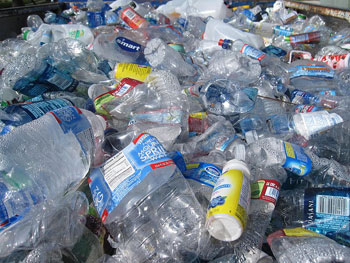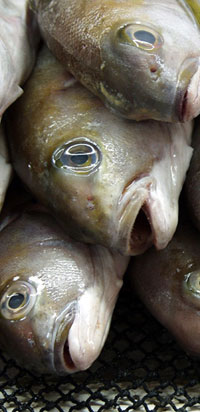
 Coca-Cola recently announced a new beverage bottle manufactured with plant materials. In March, Pepsi announced its own plant-based plastic bottle, which will hit the shelves next year.
Coca-Cola recently announced a new beverage bottle manufactured with plant materials. In March, Pepsi announced its own plant-based plastic bottle, which will hit the shelves next year.
With plastic pollution blanketing the globe, these would seem like welcome developments. But it's complicated. Some bioplastics can create expensive complications for the recycling and composting industries as well as organic farmers.
There hasn’t been enough discussion of producers taking responsibility for this “new” biodegradable waste stream. Manufacturers and brand owners are still relying on taxpayers and municipalities to pick up the cost of collecting and composting their biodegradable waste. Lack of municipal compost collection and consumer confusion means many biodegradable materials end up in landfills. There, they are broken down by microorganisms that produce methane, a potent greenhouse gas. Only about 35 percent of landfills collect this gas and convert it to energy, and the systems are notoriously leaky: Some engineers estimate that they capture fewer than 25 percent of a landfill's lifetime emissions.
I’ll be watching … to see how municipalities and private trash haulers respond to growing public pressure for bio-products collection and processing. Also, I’d like to see more life-cycle-analysis comparisons between recycling and composting containers. In general, plastics recyclers don’t want bioplastics in their mix because they don’t know what the additives might do to their resin’s next incarnation.
Notable quote: Martin Bourke, executive director the Berkeley Ecology Center, in my Smithsonian piece, said, ““Yes, corn-based packaging is better than petroleum-based packaging for absolutely necessary plastics. But it’s not as good as asking, ‘Why are we using so many containers?’ My worry is that PLA legitimizes single-serving, over-packaged products.”
Click to read more about this topic
Bioplastics are not as sustainable as some advertising implies. The feedstock is often conventionally raised corn. And then there's the question of where it's going to end up. In areas without commercial composting services, it might be better to use conventional packaging that will be recycled, rather than compostable packaging that goes to the landfill. Even composting bioplastics is problematic in some states, where organizations that monitor organic agriculture inputs have declared bioplastics synthetic (because its manufacturing process alters the chemical structure). As a result, some composters who market their products as organic won’t take compostable packaging.
Setting it straight: Bioplastic is not always 100 percent bio-based, nor is it always compostable. Some bioplastics, such as Coca-Cola's PlantBottle, are identical in chemical structure to its petro-chemical cousins so it can be recycled in existing waste streams. Others, including the popular polylactic acid (PLA) can't be recycled with conventional plastics and is considered a contaminant.
I’ll be watching ... for legislation that addresses marketing claims. In California it's now illegal to label packaging "biodegradable" or "degradable" because there is no accepted standard for those terms (after all, everything biodegrades eventually). Compostability has a standard, developed by the American Society for Testing and Materials, and compostable plastic manufacturers must pass third-party tests to claim compliance.
Click to read more about this topic
- Breaking Down Bioplastics [By Mary Catherine O'Connor, Earth Island Journal]
- Coca Cola’s PlantBottle: Digging Up the Roots [By Mary Catherine O'Connor, Triple Pundit]
- Stonyfield Plants Seed for Better Packaging [By Mary Catherine O'Connor, Triple Pundit]
- Plastic from Plants: Is It an Environmental Boon or Bane? [By David Biello, Scientific American]
The USDA National Organic Program recently said that bioplastic manufacturers must petition the National Organic Standards Board for inclusion of each ingredient in order for them to be allowed in organic compost. This means composters who serve certified organic farmers will either have to set up two compost streams or stop taking compostable serviceware until a manufacturer petitions for inclusion, a process that can take more than three years. An interesting side note is that there are no such “USDA certified organic” restrictions on composting things the FDA considers "food," including Twinkies and Froot Loops.
I was surprised to learn … that there were petrochemicals in certified compostable packaging and serviceware.
Notable quote: Brad Rodgers, Frito-Lay's manager of sustainable packaging and advanced materials research, said “Flexible packaging is somewhat of a victim of its own success,” explaining that the advances that have led to less material in packaging have also made them less attractive to commercial recyclers. “So composting seemed a very viable end-of-life scenario.”
Click to read more about this topic
| Tweet This Page |












